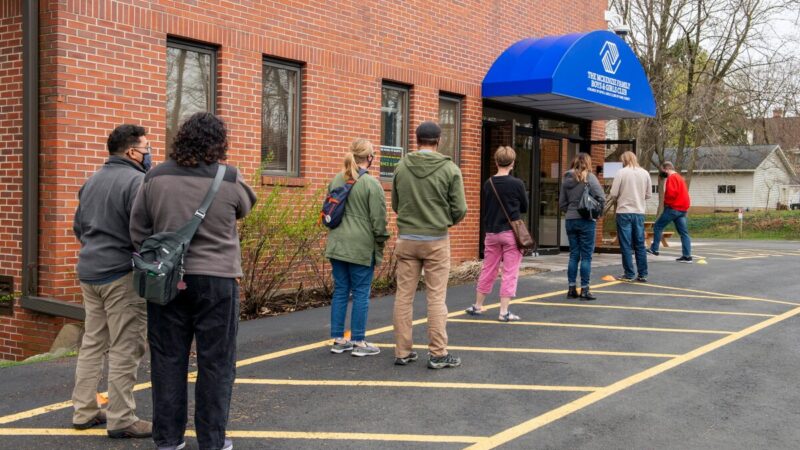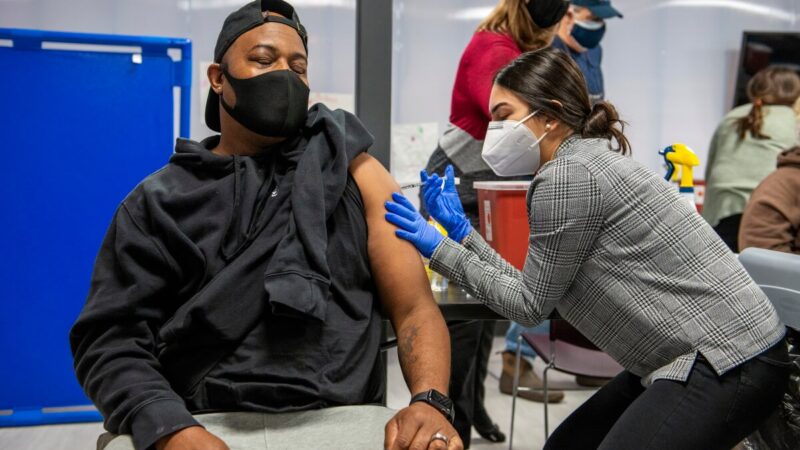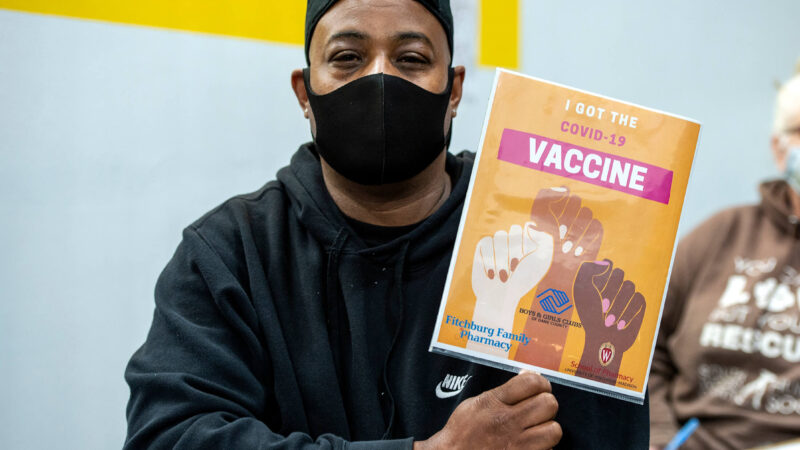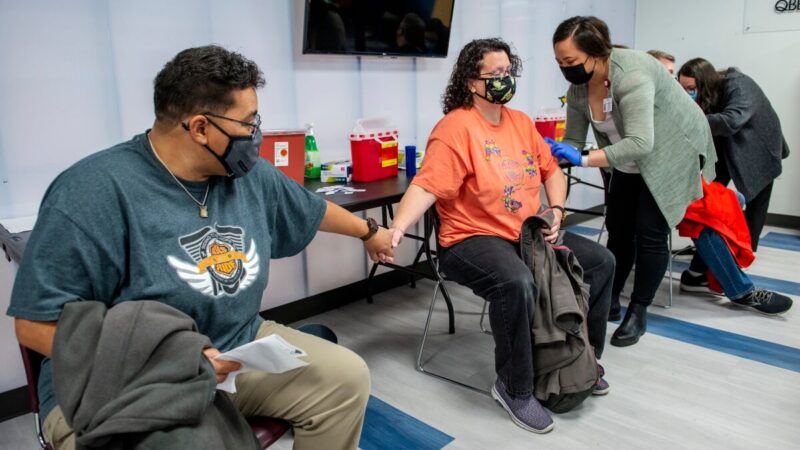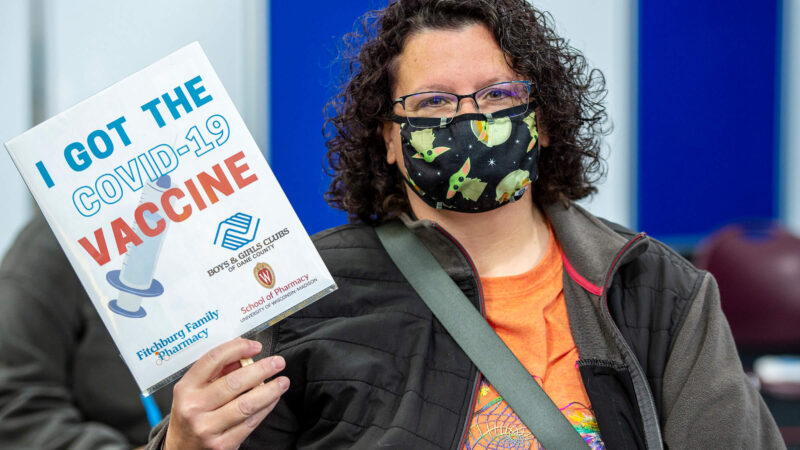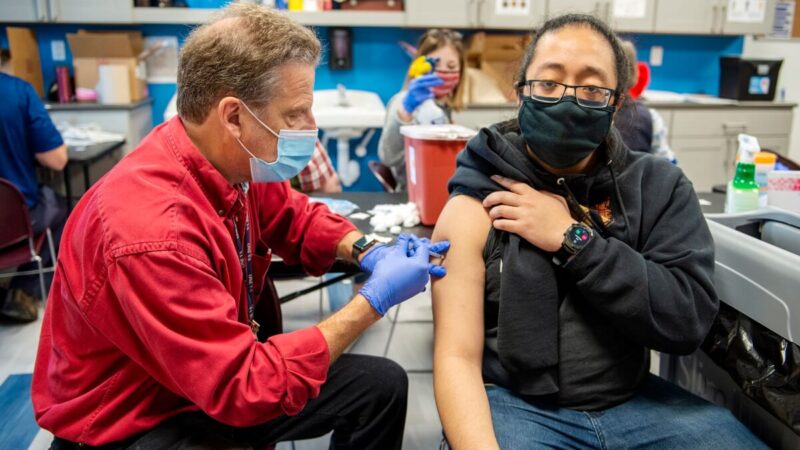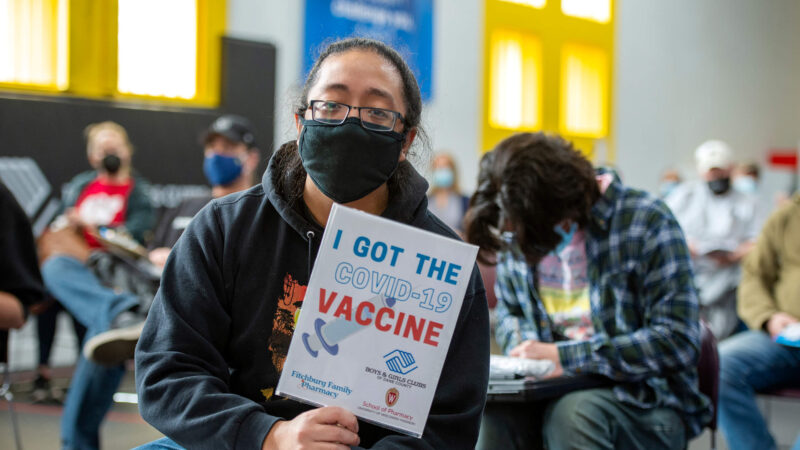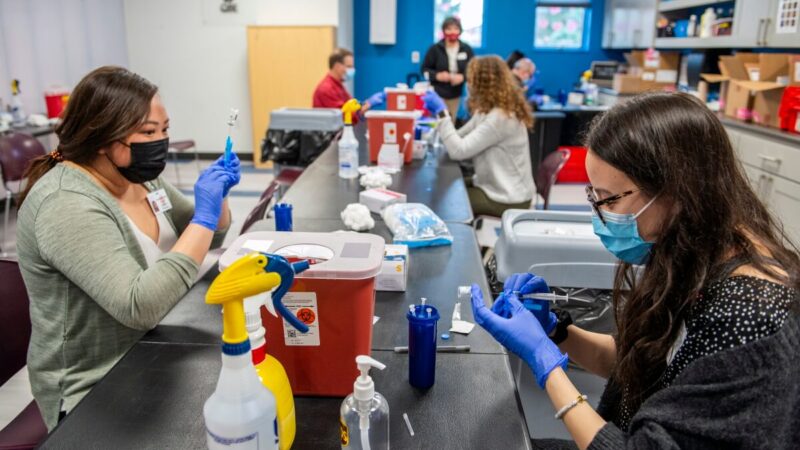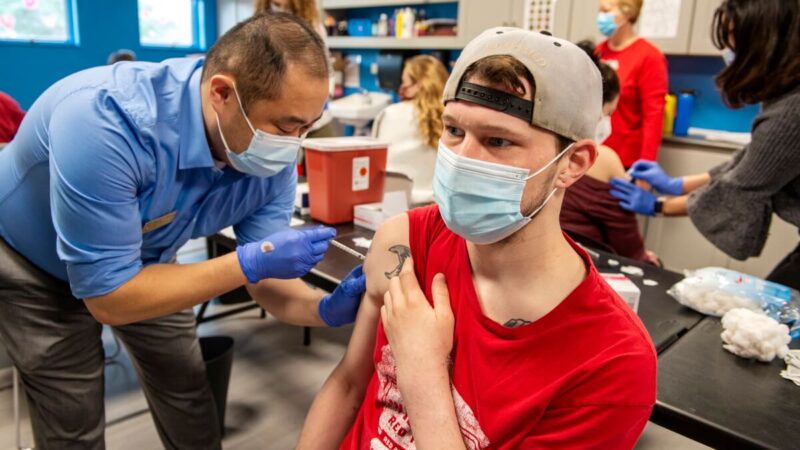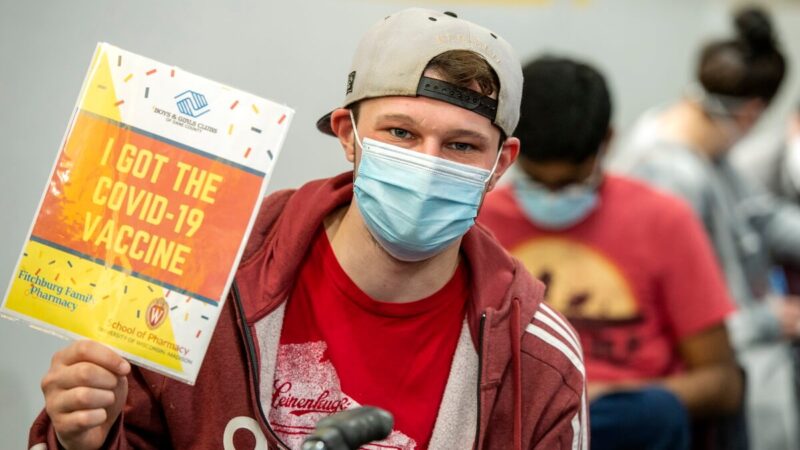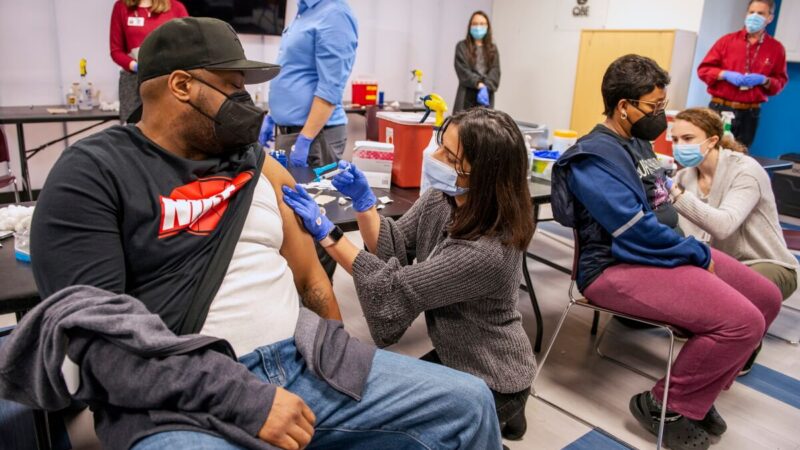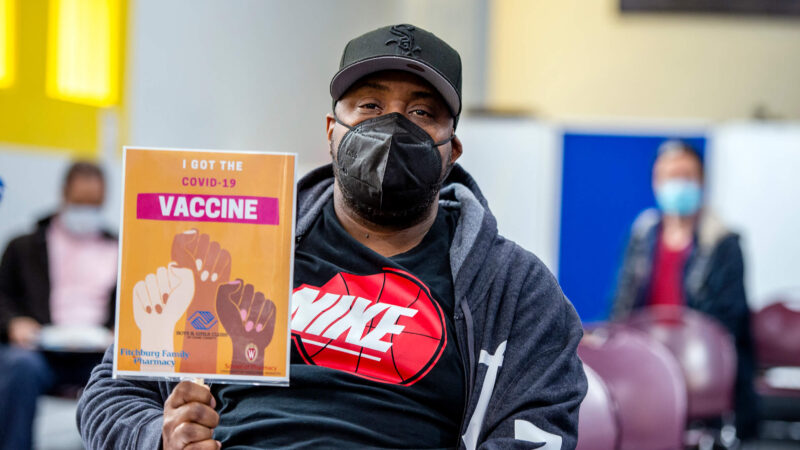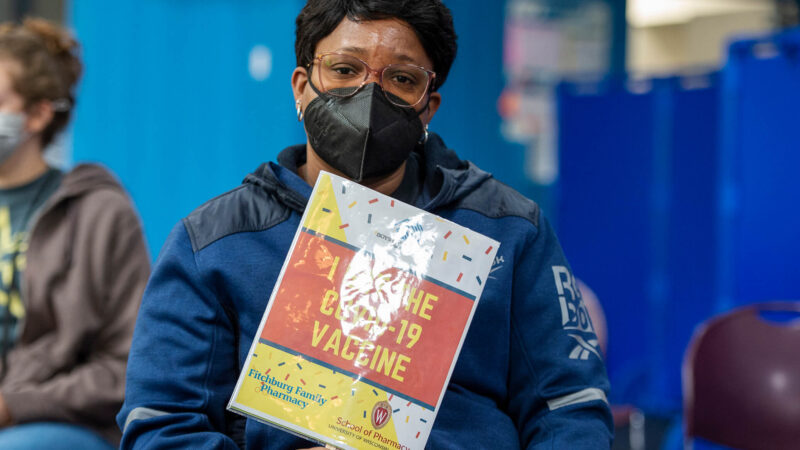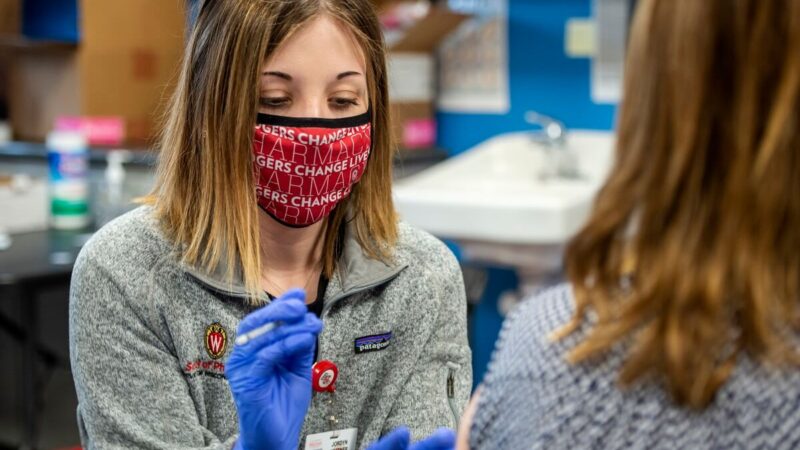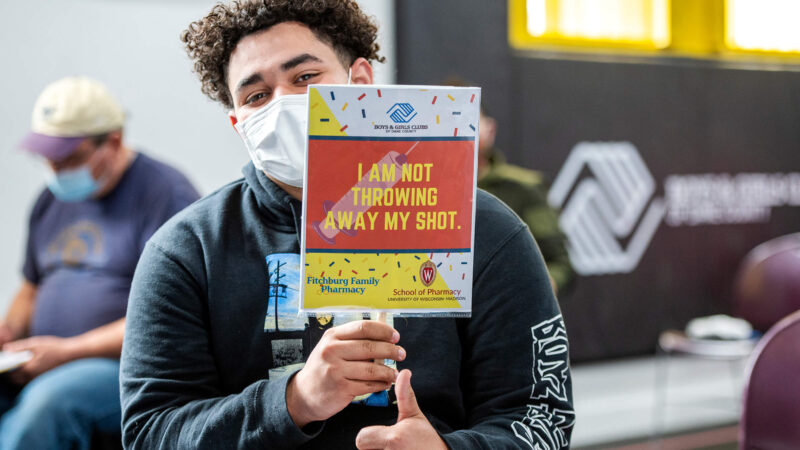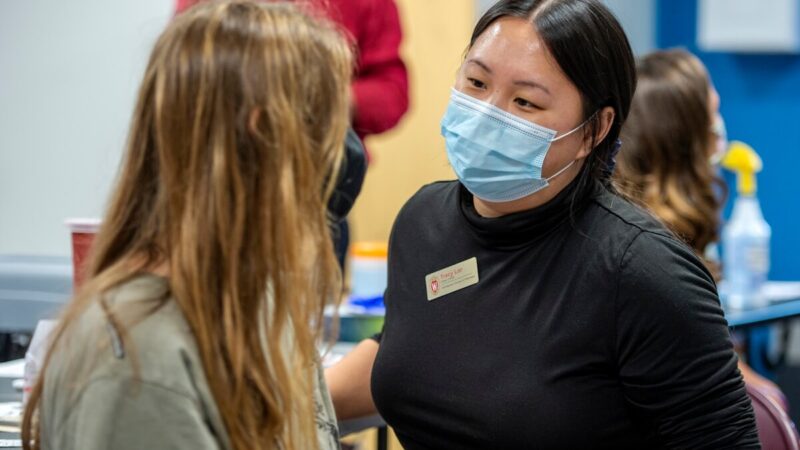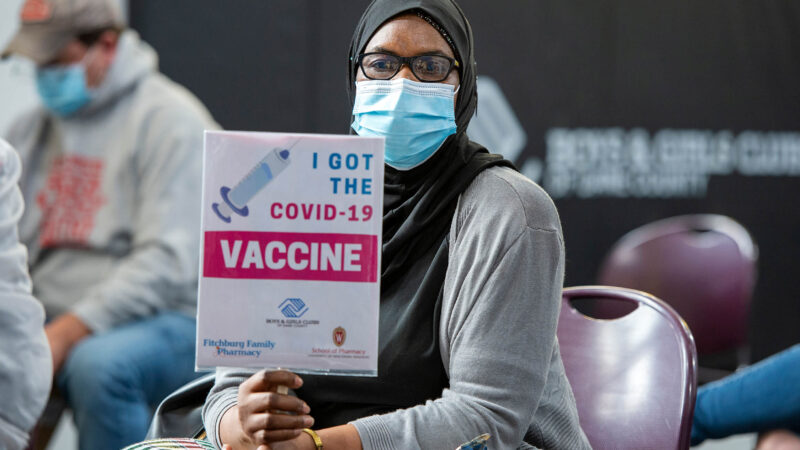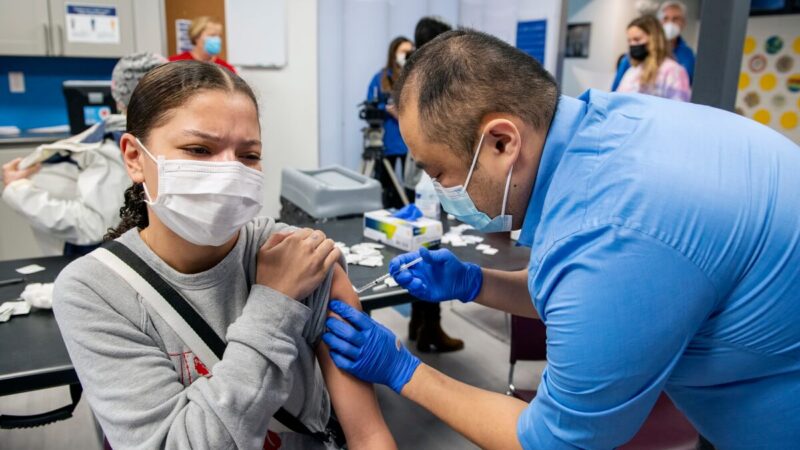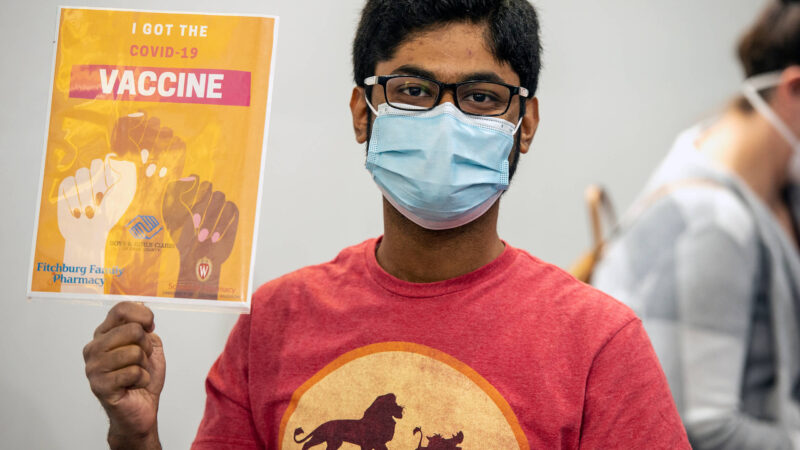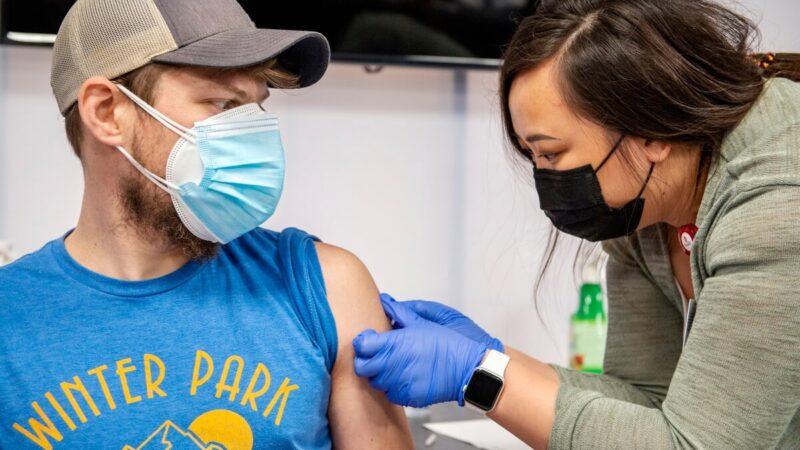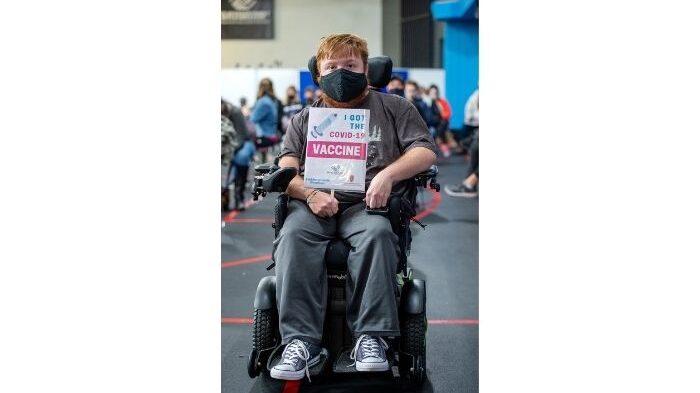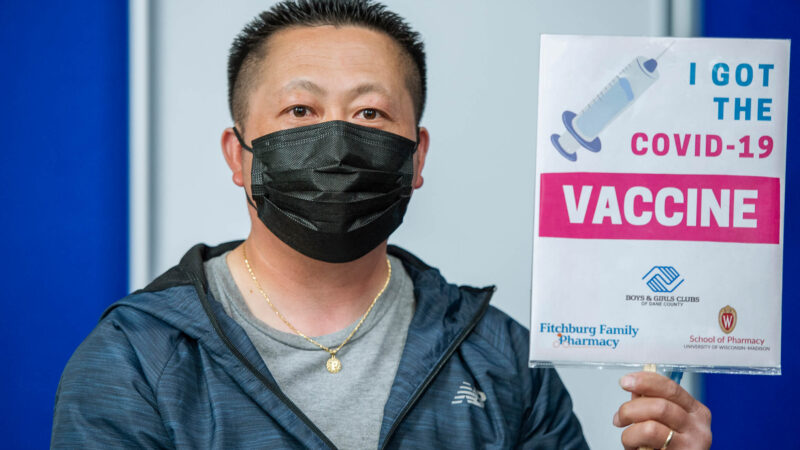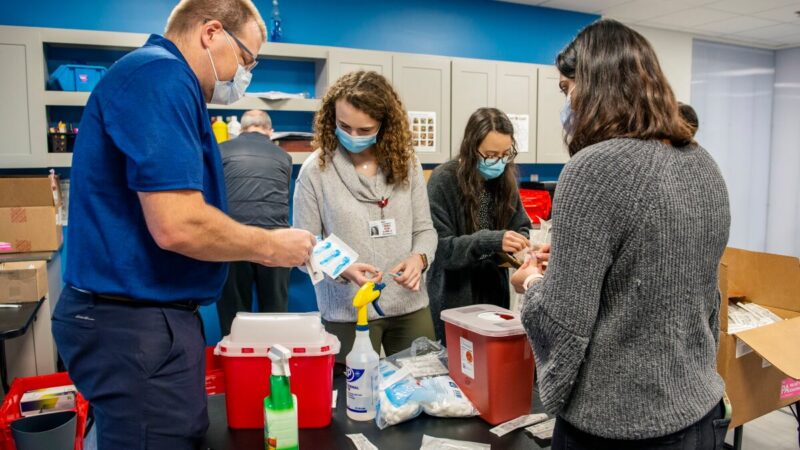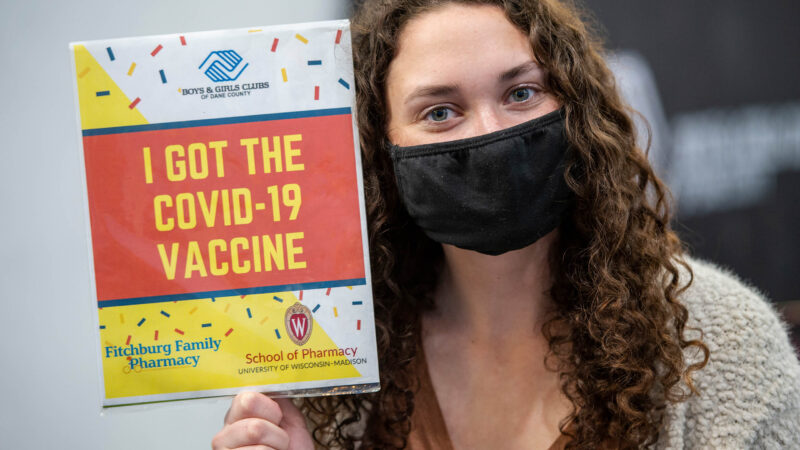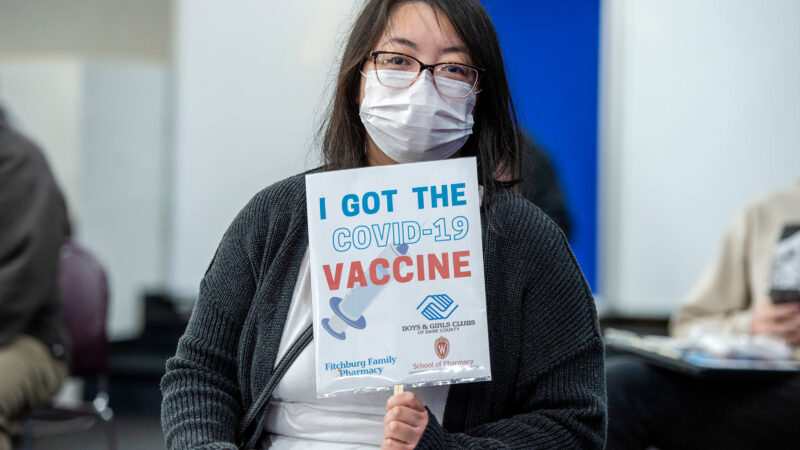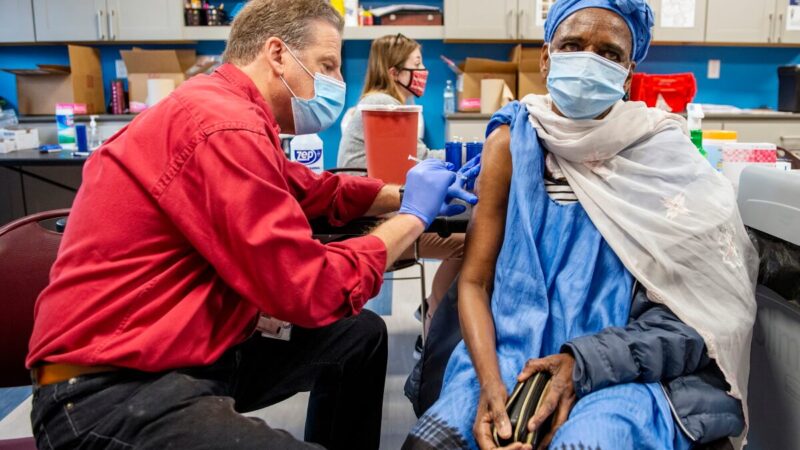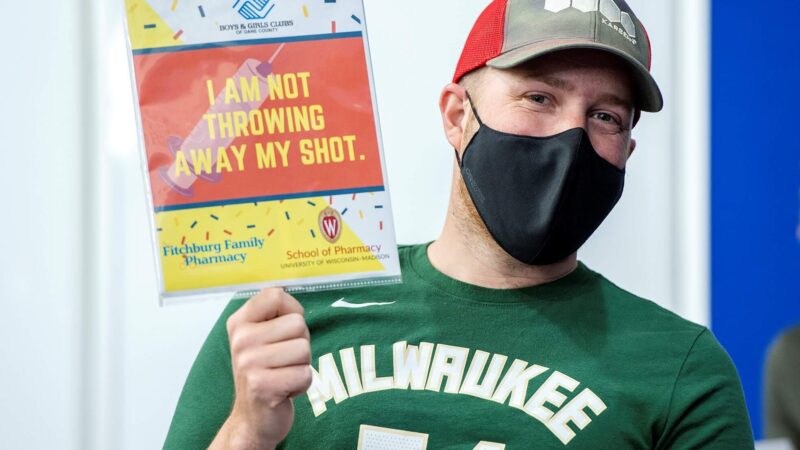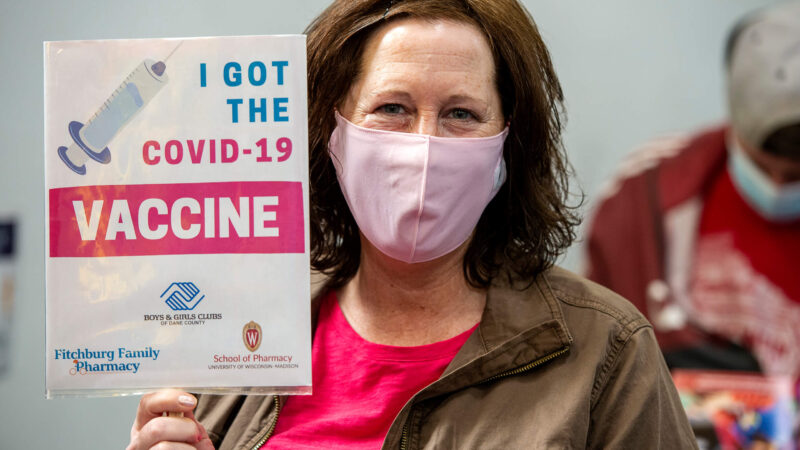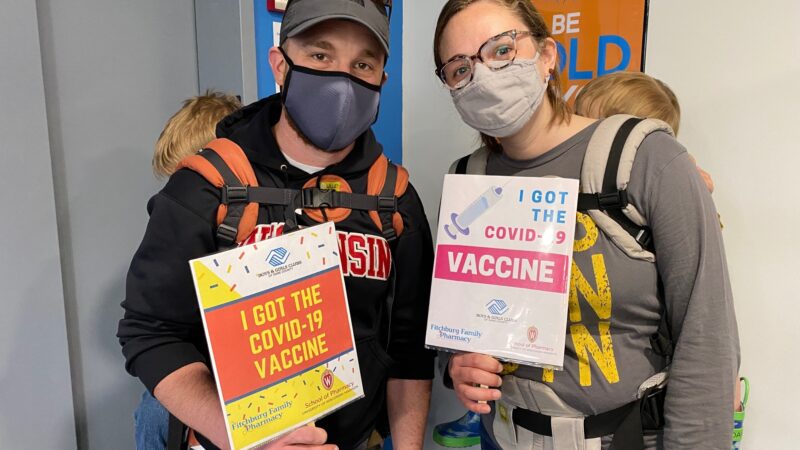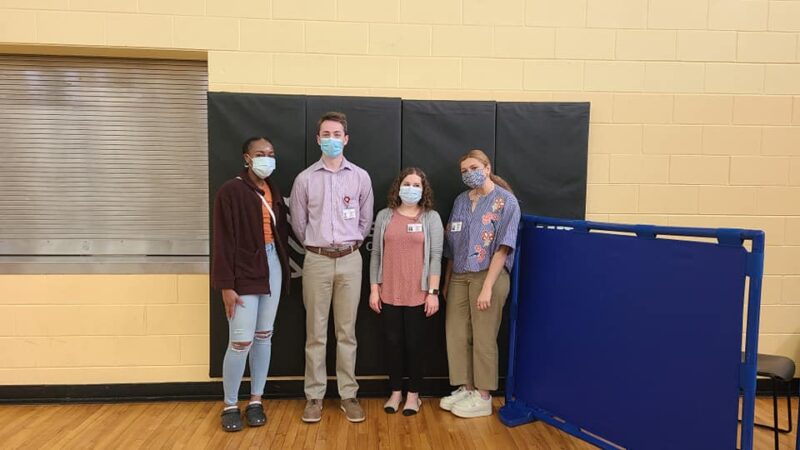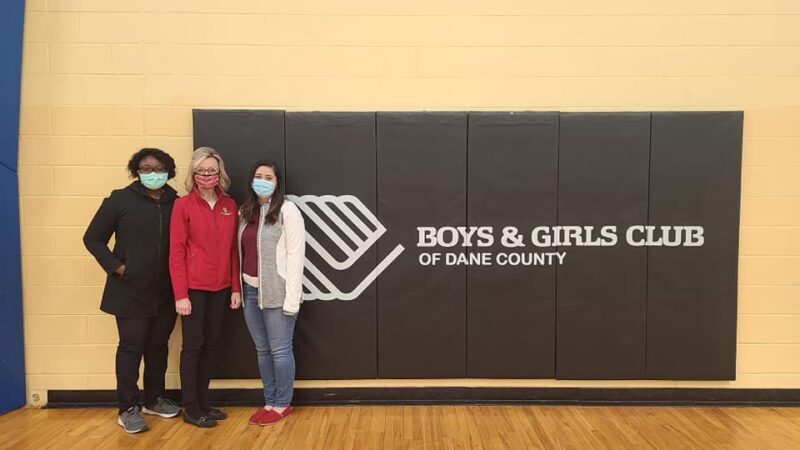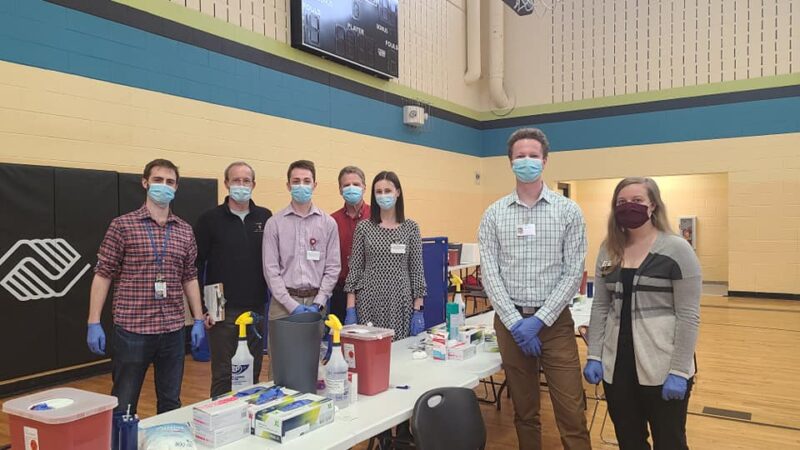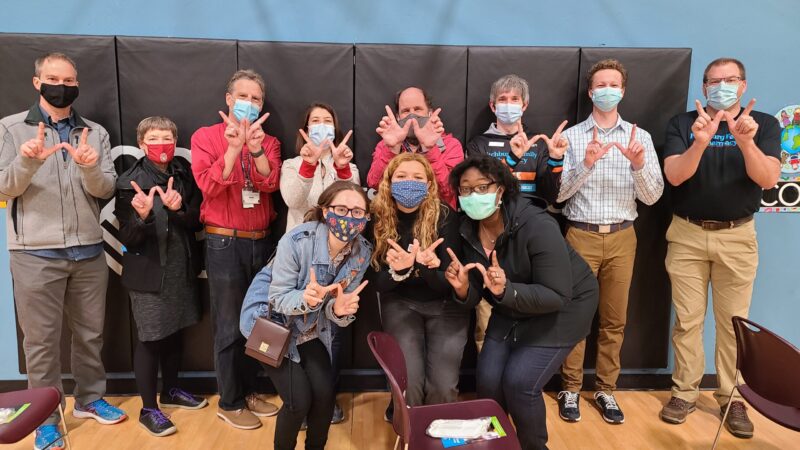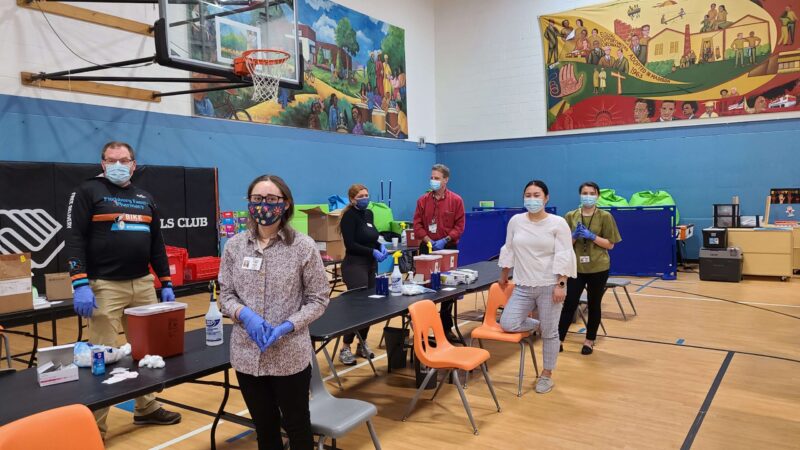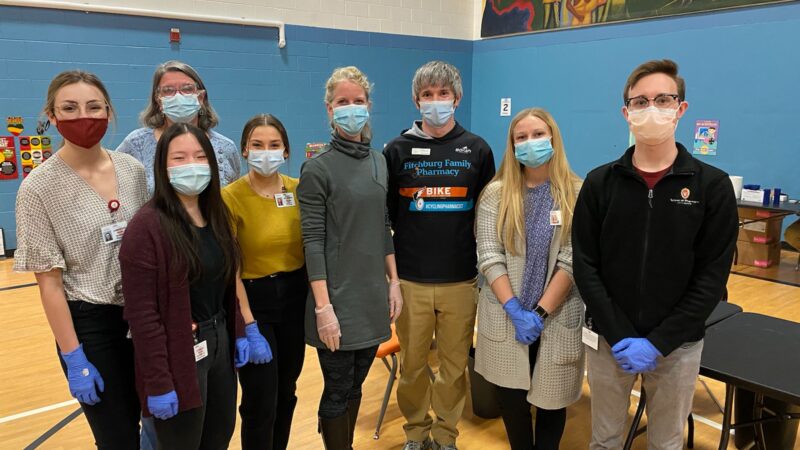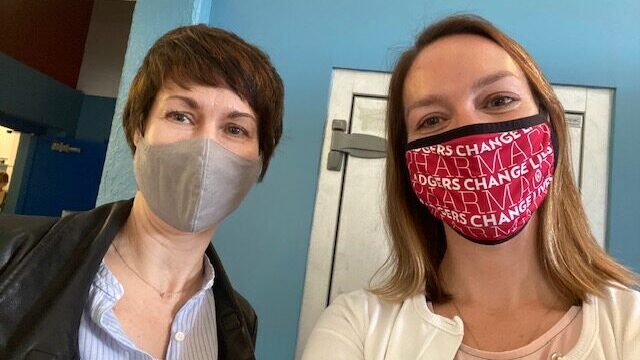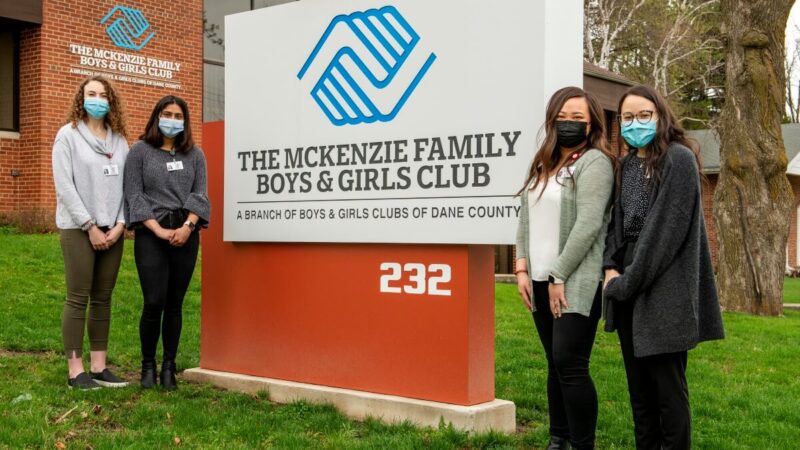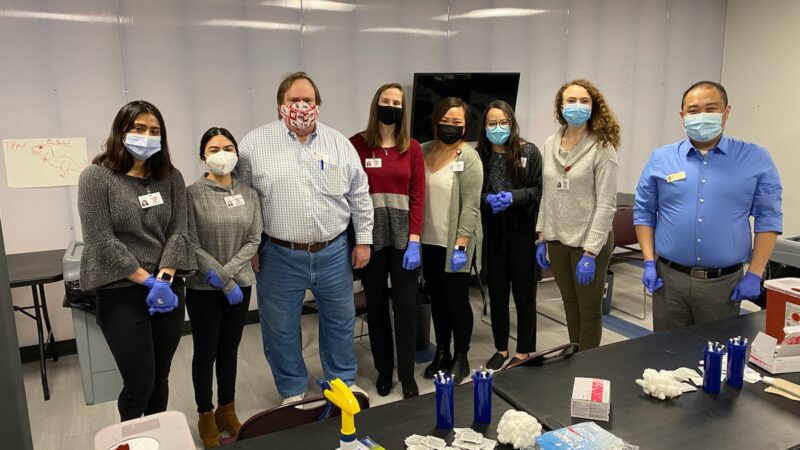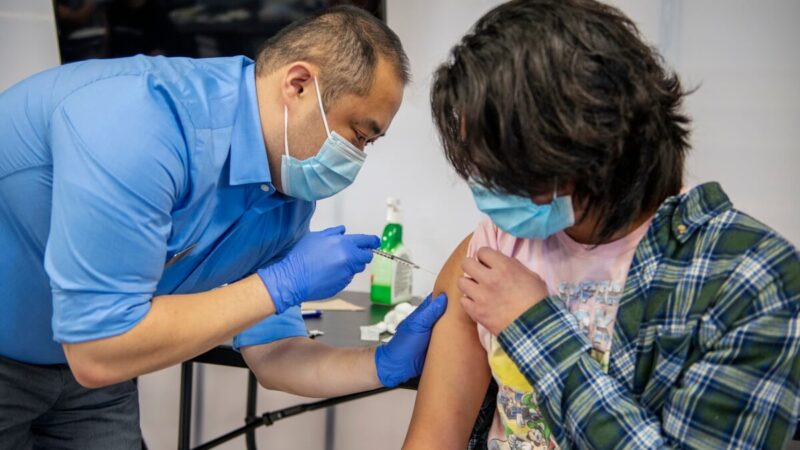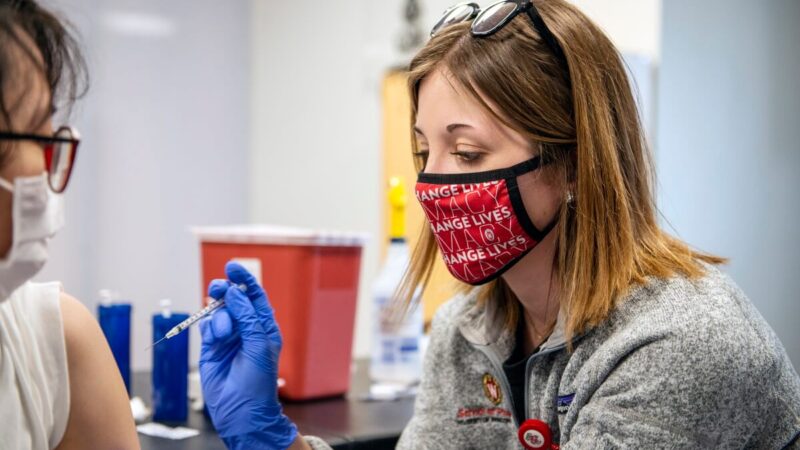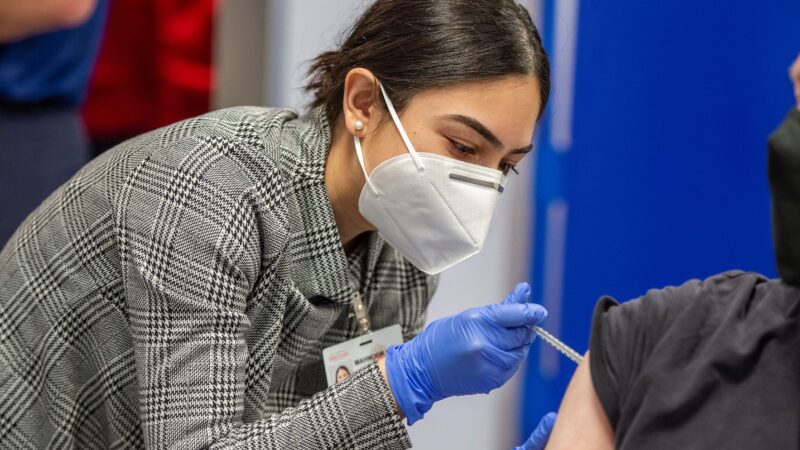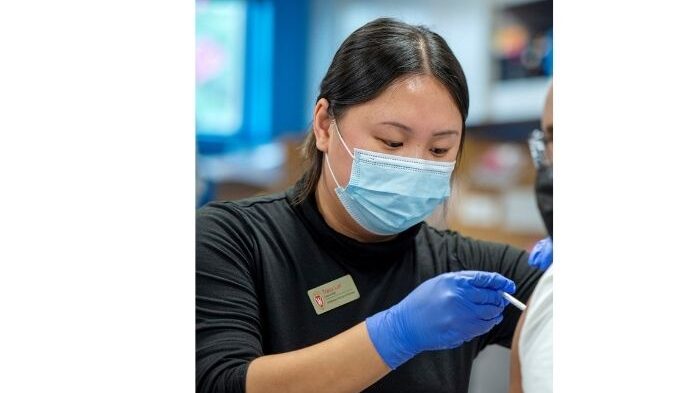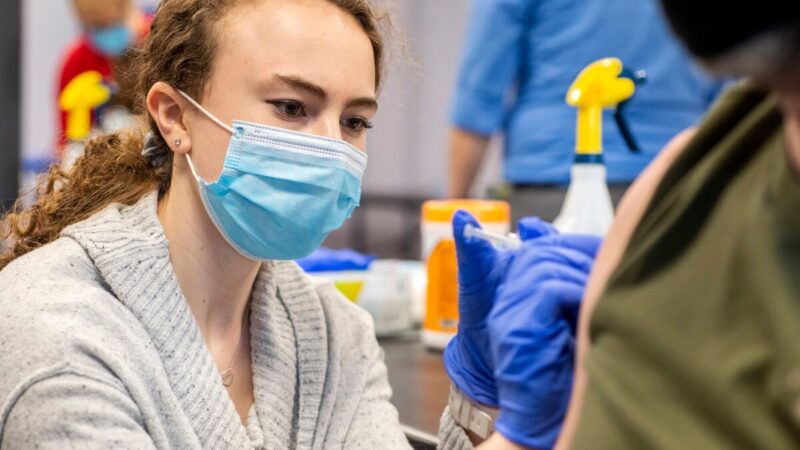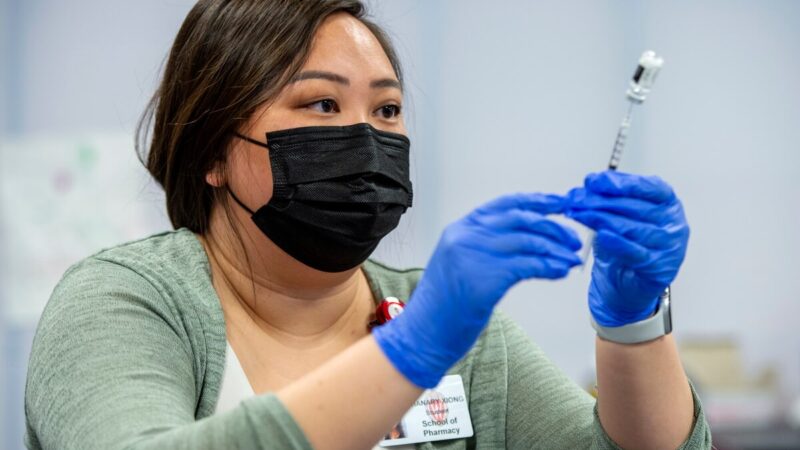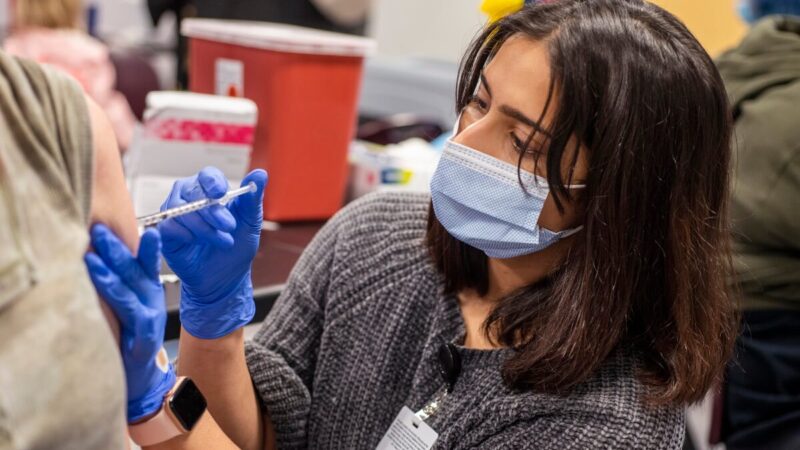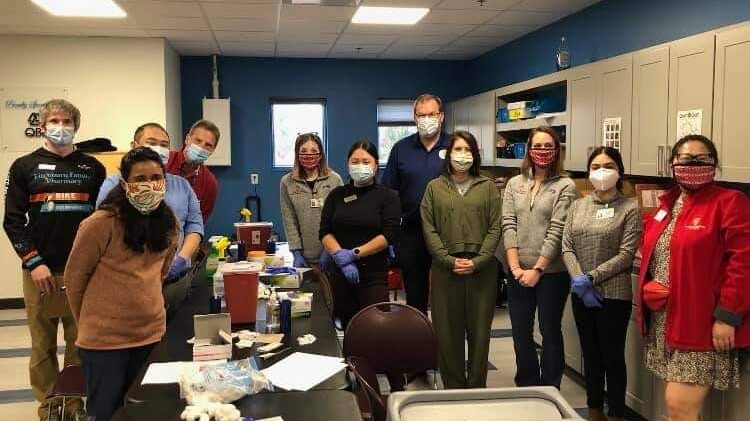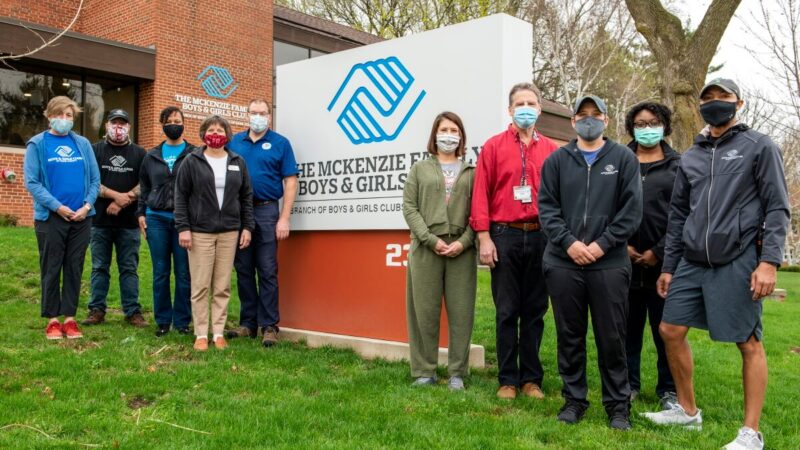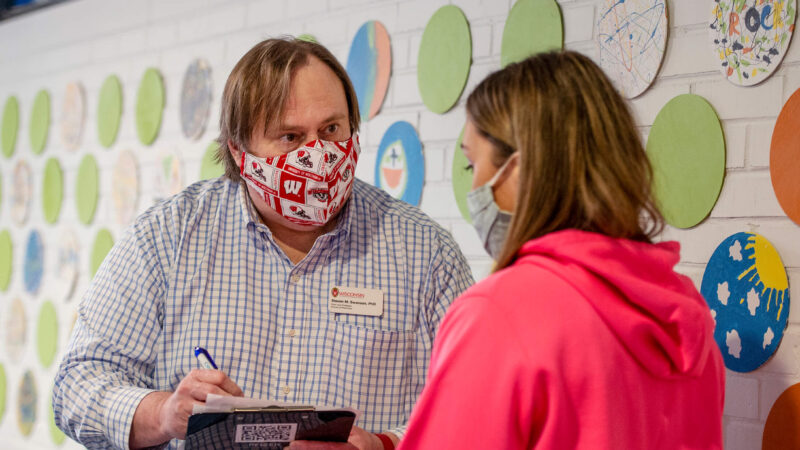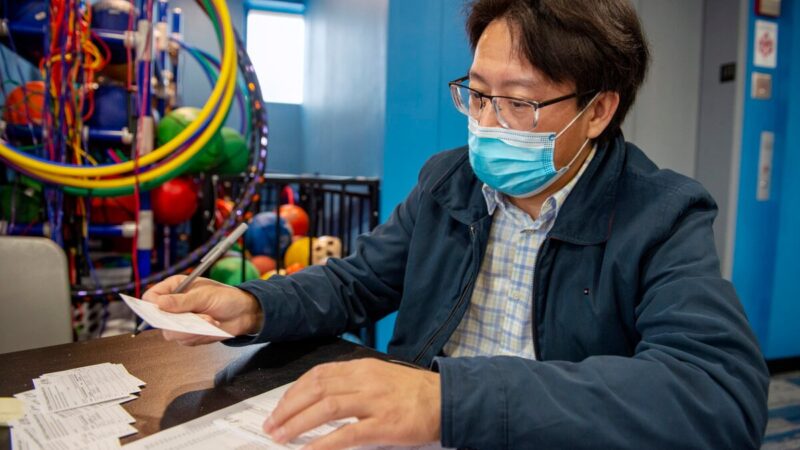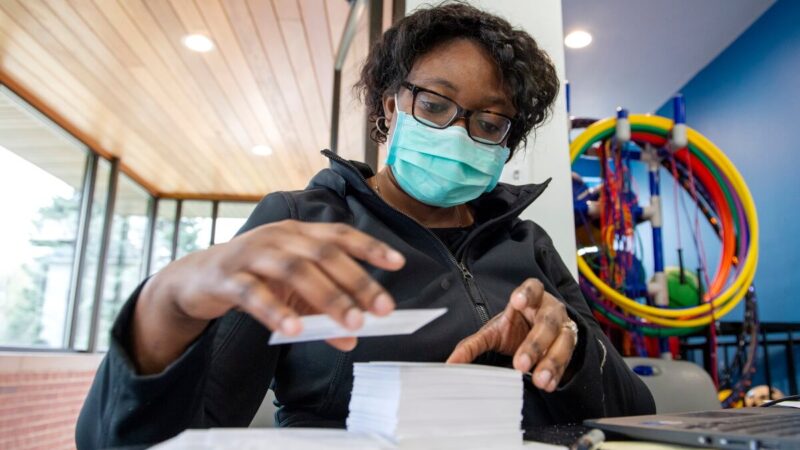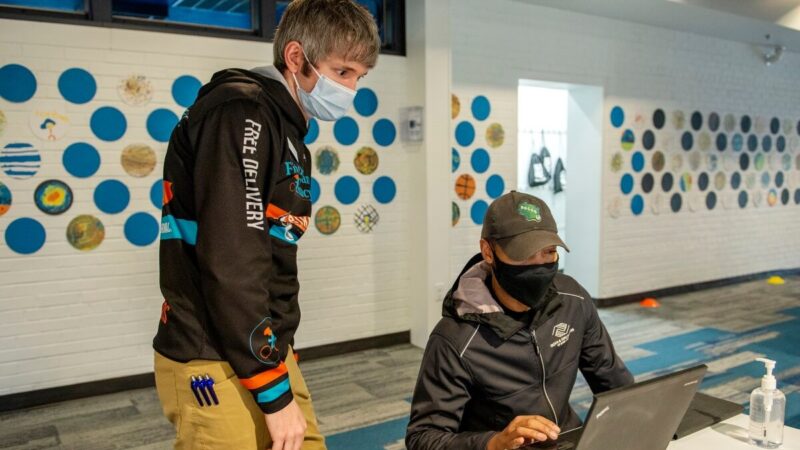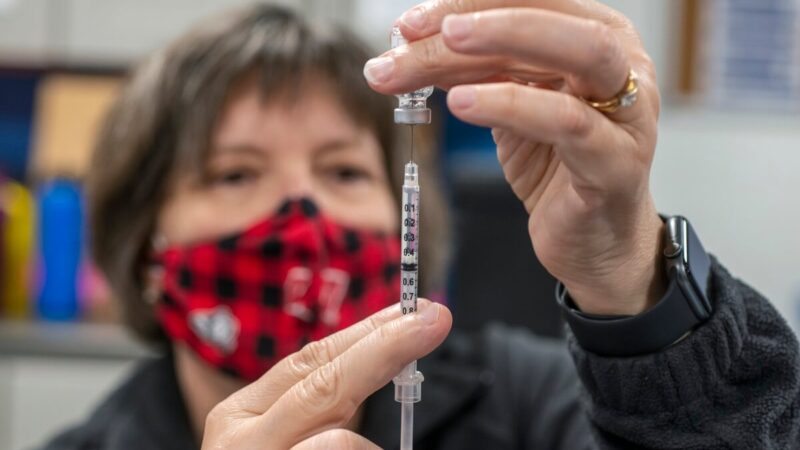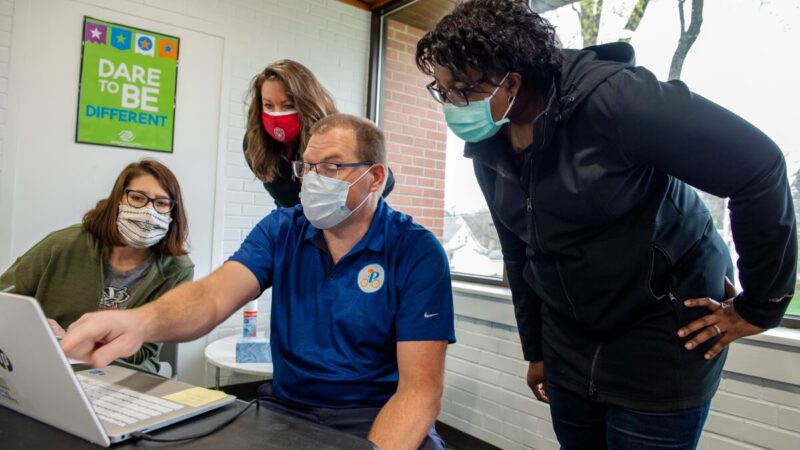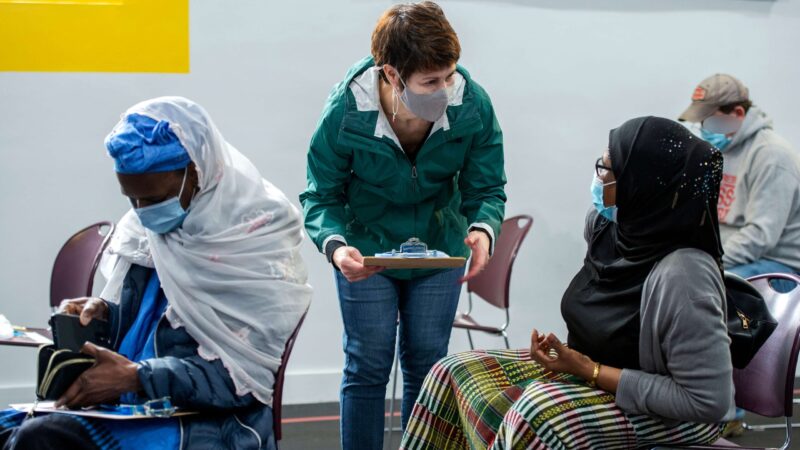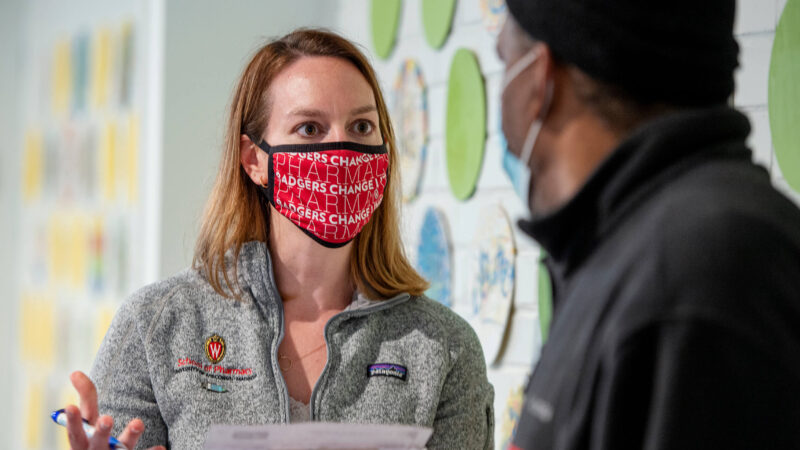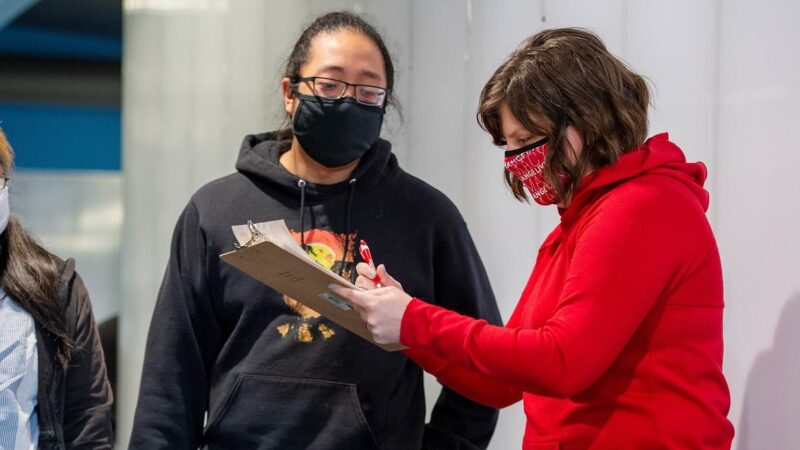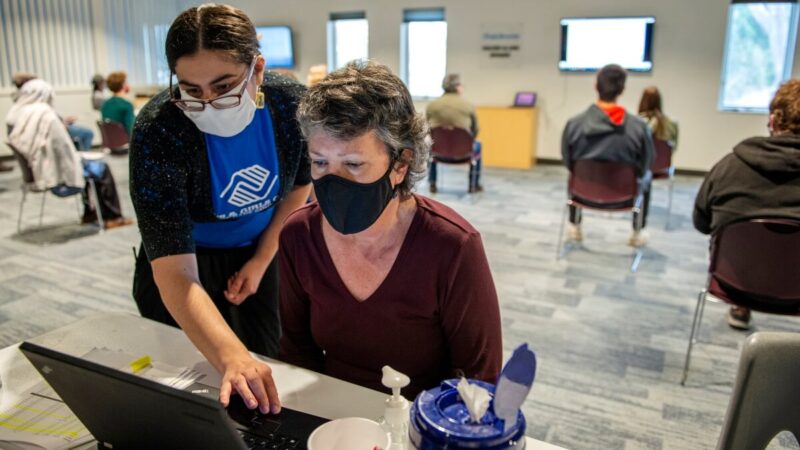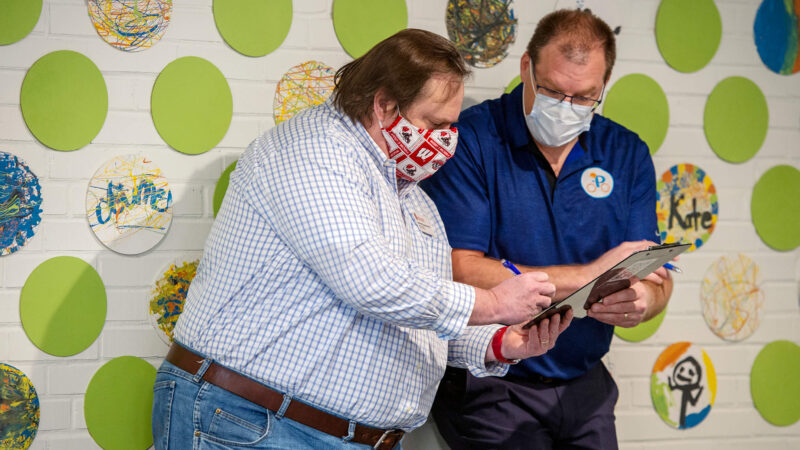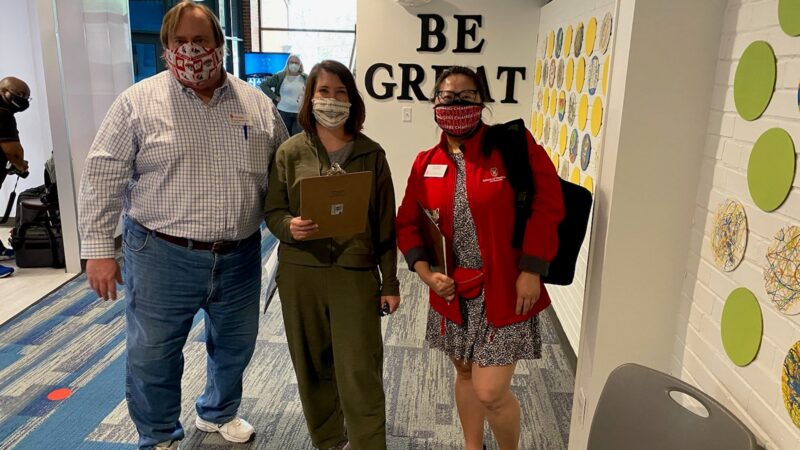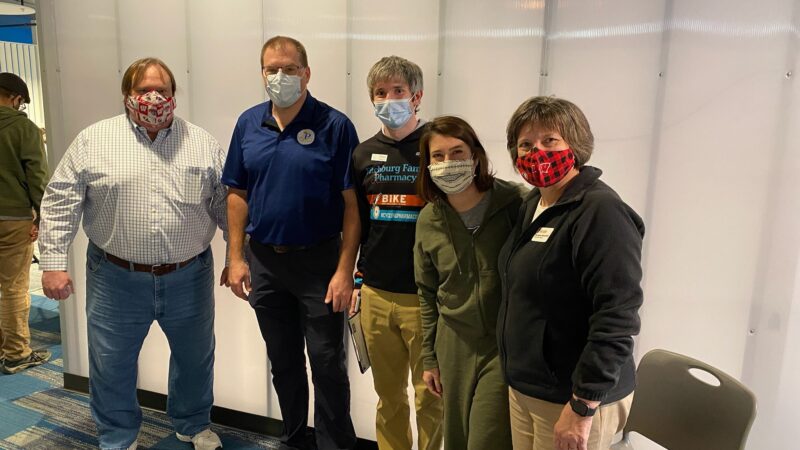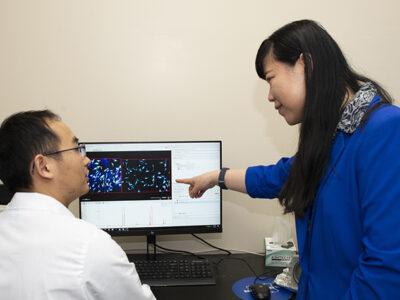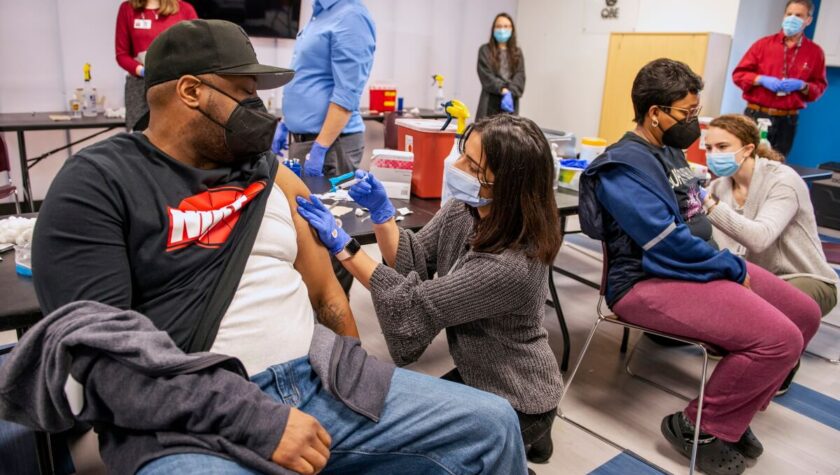
18
May

The School of Pharmacy, Fitchburg Family Pharmacy, and the Boys and Girls Club partner to increase COVID-19 vaccine access and address hesitancy among BIPOC communities — with recognition from the White House
By Katie Ginder-Vogel
As pharmacists and healthcare providers rallied to fight the COVID-19 pandemic, the race to vaccinate the public opened a different battlefront — addressing vaccine equity. Although people of color have been disproportionately impacted by the pandemic in coronavirus cases, hospitalizations, and deaths, these communities of color have lower rates of vaccination. In Wisconsin, the COVID-19 vaccination rate for Black patients is about half the rate of white patients.
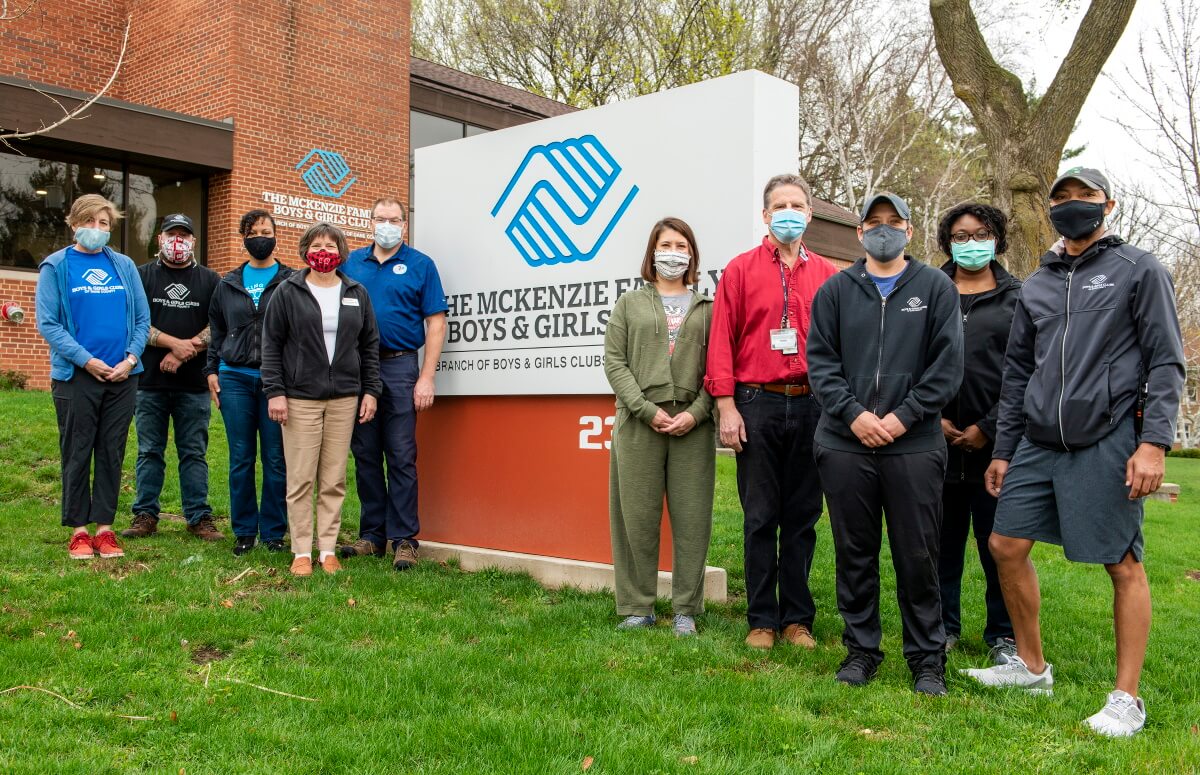
“Systemic racism has been around since the inception of this country,” says Lisa Imhoff, associate dean for Diversity and Inclusion Initiatives at the University of Wisconsin–Madison School of Pharmacy. “We’d been talking with our PharmD students about vaccine hesitancy within communities of color, the history of medical abuse toward these communities, mistrust, and current disparities in healthcare access and treatment when the opportunity for a community-based program presented itself.”
A new partnership between the UW–Madison School of Pharmacy, Fitchburg Family Pharmacy, and the Boys and Girls Club of Dane County makes steps toward rebuilding trust and increasing access to the COVID-19 vaccine through a series of community-focused events, giving student pharmacists the chance to get involved as vaccinators.
“This community partnership is unique in that it serves historically underserved and marginalized communities and is led by trusted leaders like Michael Johnson at the Boys and Girls Club.”
—Lisa Imhoff
“Vaccine access has been inequitable, and a huge part of healthcare is meeting people where they are by doing community outreach, especially when there are barriers,” says Imhoff, one of the lead organizers. “Student pharmacists have done vaccine outreach in the past, but this community partnership is unique in that it serves historically underserved and marginalized communities and is led by trusted leaders like CEO Michael Johnson at the Boys and Girls Club.”
Through the partnership, the School and the Boys and Girls Club hosted eight vaccine clinics in neighborhoods around Madison on Saturdays in April and May, providing vaccines to more than 600 community members, as well as two virtual town hall discussions on May 12 and 13.
“We’re lucky to be able to partner with Fitchburg Family Pharmacy, whose owner Thad Schumacher is on the board of the Boys and Girls Club of Dane County,” says Professor Barry Gidal, who helped orchestrate the partnership. “These vaccine clinics have been a great success, and this sets us up for future partnerships.”
This vaccine equity initiative reached the White House. On June 16, the partnership will be highlighted in a “State of Vaccines” webinar with the U.S. Surgeon General and hosted by the U.S. Department of Health and Human Services. Panelists will include the Boys and Girls Club of Dane County’s Michael Johnson, School of Pharmacy’s Lisa Imhoff, and Fitchburg Family Pharmacy’s Thad Schumacher.
Expanding vaccine access
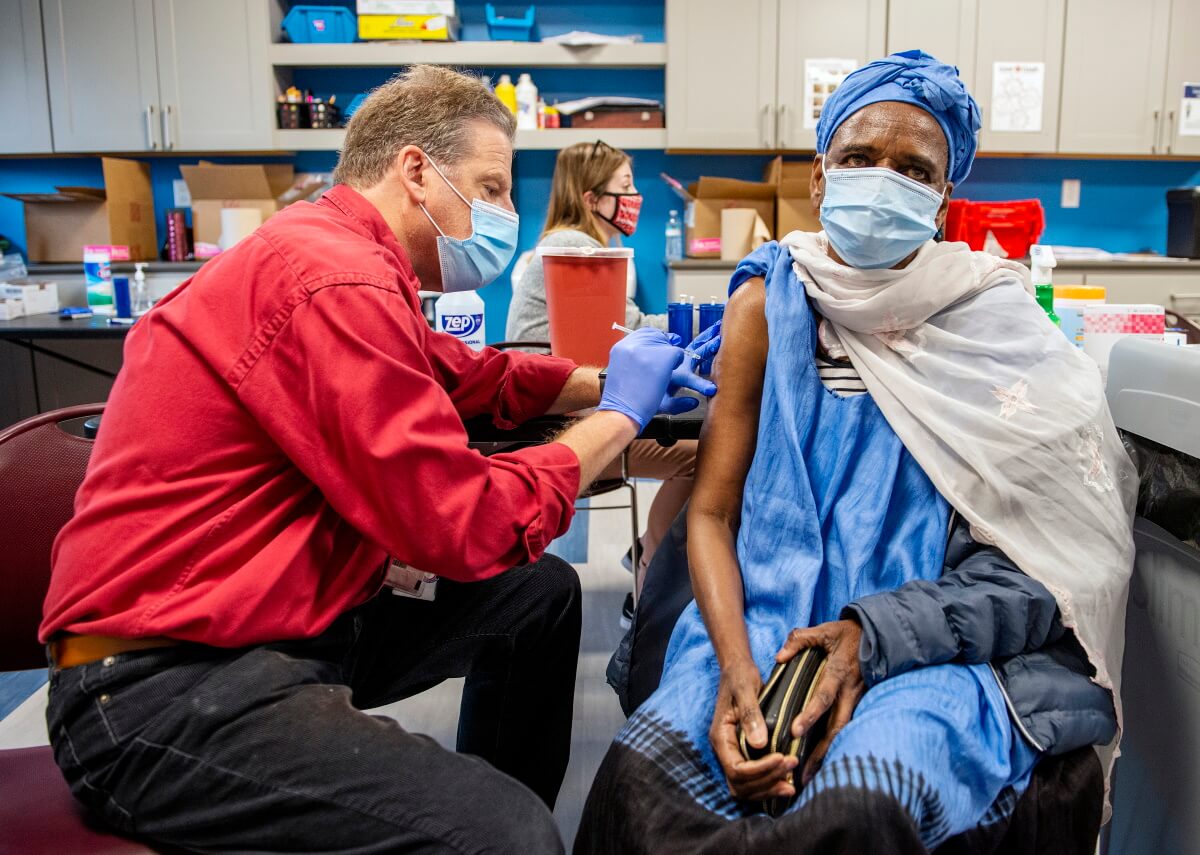
Vaccination clinics every Saturday in April and May were focused on and located in underserved communities of color, including the McKenzie Family, Taft Street Boys, and the Allied Family Center Boys and Girls Club locations, as well as the Northport Community Center and Lighthouse Church in Madison.
Fitchburg Family Pharmacy provided the vaccines, and School of Pharmacy PharmD and graduate students, faculty, and staff helped administer doses and run the clinics with the Boys and Girls Club team.
“Pharmacists are the most accessible healthcare providers. We’re seeing that here at the vaccination clinic, because our scope of practice allows us to give immunizations,” says Jordyn Kettner, a PharmD student volunteer vaccinator. “It’s important for us to get out into the community so that patients can really understand our role as providers and as healthcare providers.”
“A huge issue we’ve always faced in health literacy is how people navigate a system online to get their needs met when it comes to health services,” says Olayinka Shiyanbola, School of Pharmacy associate professor in the Social and Administrative Sciences Division whose research focuses on health equity and one of the lead organizers.
“That’s why I’m really glad that with the Boys and Girls Club of Dane County, we are breaking that barrier and delivering vaccines in walkable areas without the requirement of online registration,” she says. “You don’t have to have technology or transportation. We’re going right into the community, which helps to improve access.”
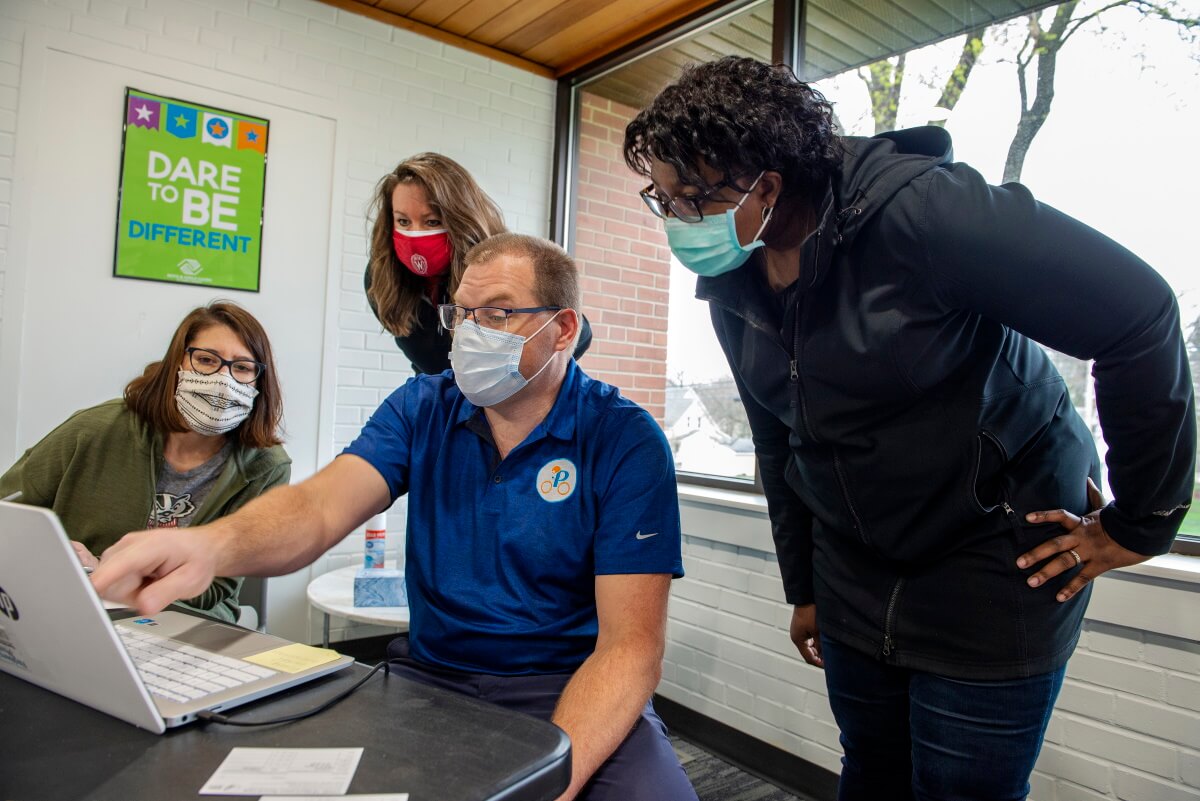
Shiyanbola has volunteered at every single Boys and Girls Club of Dane County vaccine clinic, alongside Imhoff and other School of Pharmacy faculty including Professor Mary Hayney, updating the Wisconsin Immunization Registry as people receive their vaccines.
“I have been so excited to get out there,” she says. “This is something I have always wanted to do to serve the community, so for me, it’s really humbling and rewarding. I’m loving seeing people smile and getting a feeling of wellness and safety; that gives people hope at the end of this.”
Schumacher acknowledges that vaccine uptake in underserved communities can be a long process. He believes that locating vaccine clinics directly in neighborhoods resulted in many people getting vaccinated who would not have otherwise, and he hopes word will travel and motivate other community members to get vaccinated.
“We know we impacted the community, and I think people who see others who got vaccinated that day out in the community, with no adverse reaction to the vaccine, might consider doing it themselves,” says Schumacher.
Gregory Mosely is one of the patients who received a vaccine at the McKenzie Family Boys and Girls Club clinic in Sun Prairie and had a positive experience.
“It feels good to get the vaccine finally,” says Mosely. “I wanted to protect myself and my family members. Everybody in my household has been vaccinated, so we all feel good about that.”
“Everybody is so happy and grateful to be able to get the vaccine,” says Professor Mary Hayney, one of the School of Pharmacy organizers. “It’s such a good experience volunteering at these clinics, even just for that reason. Our students did a great job of administering vaccines. They are so good at calming fears, and reassuring patients.”
Across the eight vaccine clinics, volunteers from the School of Pharmacy and Fitchburg Family Pharmacy delivered hundreds of COVID-19 vaccines.
Mahnoor Khan was one of 31 School of Pharmacy PharmD students who helped administer vaccines at the clinics.
“Helping out in the community is a really good way to give back,” she says. “I can answer questions that people might have, especially questions about vaccine hesitancy and misconceptions. Just addressing those helps me know that I made a difference.”
Mark Moua, another PharmD student, also says he was grateful for the opportunity to speak with patients who are unsure about the vaccine.
“It’s nice to see people here and address their concerns, their questions,” he says. “It’s been a great opportunity for me as a student pharmacist to actually address hesitancy and explain the science behind the vaccines.
“I love working with patients and talking with patients. It’s also a great way of seeing patients who are just like you, and on top of that, for them to see there are people like me doing this vaccine work. What we’re doing today—vaccinating—it’s a role of the pharmacist and this is just expanding on it. I can’t wait to actually finish school and be able to do this every single day,” adds Moua.
For PharmD student Tracy Lor, volunteering at the clinics is about removing a language barrier for some community members.
“I want to be a person of color here to help with people who may need translations,” she says. “The most satisfying part is being able to make people feel assured, answer any questions they have, and be here for whatever they need.”
Dispelling myths and misinformation about vaccines
The virtual town halls on May 12 and 13 were aimed at reducing vaccine hesitancy and featured Black, Indigenous, People of Color (BIPOC) healthcare professionals and community leaders focused on outreach, including Shiyanbola and Imhoff.
Other panelists included physicians Jasmine Zapata, William Hartman, and Sheryl Henderson from the UW School of Medicine and Public Health and UW Health; Shiva Bidar-Sielaff, chief diversity officer for UW Health; Peng Her, community relations officer with the UW Institute for Research on Poverty; as well as a host of community leaders, such as Lourdes Shanjani, Corinda Rainey-Moore, Pastor Marcus Allen, and Pastor Marcio Sierra.
Led by moderator Nestor Rodriguez, a physician at UW Health, the panelists discussed the historical and contemporary reasons behind vaccine hesitancy in BIPOC communities, unequal healthcare access, the history of vaccines and how vaccines work, and their personal vaccination experiences.
“As someone who studies misinformation/beliefs and health literacy and as someone who identifies as Black and an immigrant, it was important to me to be there to talk about why I got vaccinated, and hopefully that relates to people in the community who are Black or immigrants and might be needing that information to help make their own informed decisions,” says Shiyanbola. “My research shows that when peers who look like you and come from your community talk about their experiences doing a behavior, that motivates somebody else to do that behavior. Hopefully, sharing our stories motivates people to get vaccinated.”
At the youth-focused May 13 town hall, panelists answered questions submitted by young people in the community. Recent pharmacy graduate Cierra Brewer (PharmD ‘21) and PharmD student Der Lor joined Shiyanbola, Imhoff, and other experts for that event and gave vaccinations at one of the clinics. Brewer, who is working as an intern at Fitchburg Family Pharmacy this summer, says she understands mistrust and anxiety in communities of color.
“If you have mistrust or are nervous, based on what we’ve seen in the past, especially for people of color, that opinion is very valid,” Brewer says. “The more data we have, the more we can make the community feel comfortable. I want to provide them with the information they need to make an informed decision.”
The town halls were part of a week of activities to raise COVID-19 vaccine awareness, which began with a walk around the Wisconsin State Capitol on May 11 and ended with the partnership’s final vaccine clinic on May 15.
Providing ongoing outreach
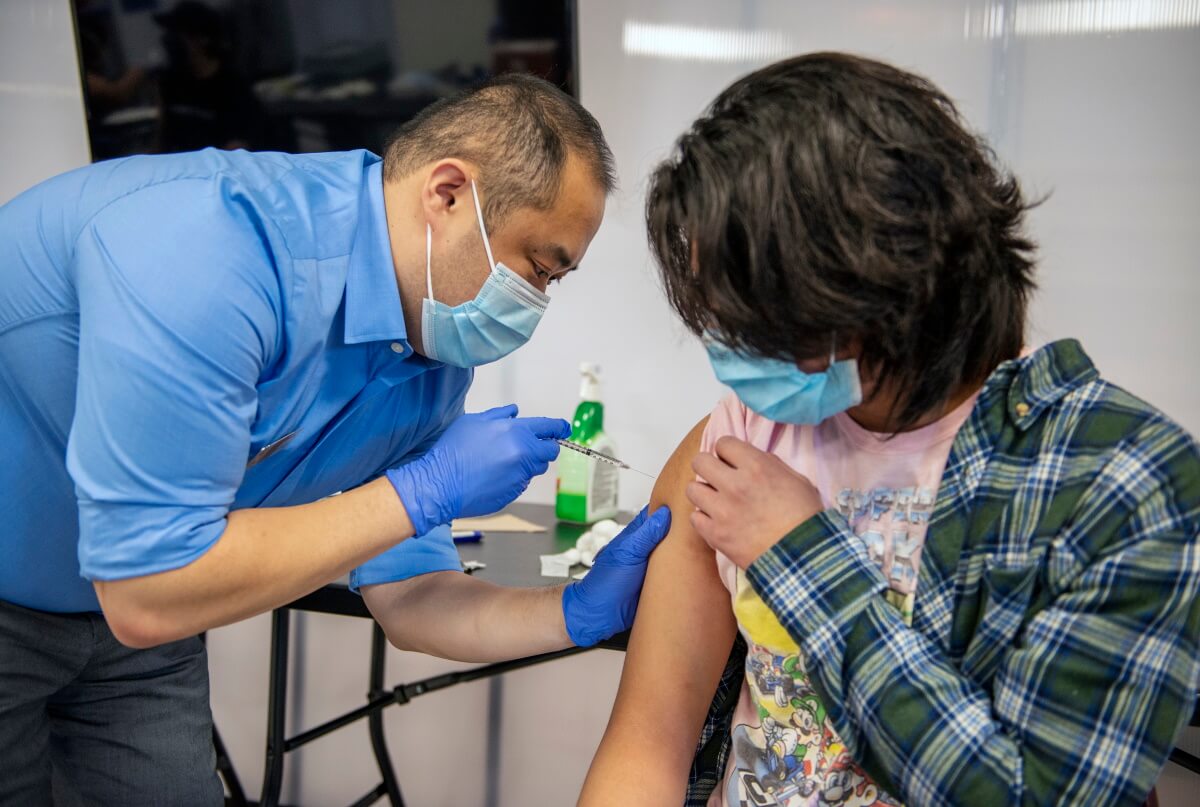
Imhoff says the endeavor highlights the benefits of having a relationship with the Boys and Girls Club of Dane County, Fitchburg Family Pharmacy, and other community partners.
“This initiative shows the power of collaboration and that it really takes a concerted effort by many to do the right thing,” Imhoff says. “Everyone benefits — volunteers and the community — when the academic world intersects with the community.”
Imhoff adds that the School will continue to partner with community organizations to serve marginalized and underserved communities.
“I want people to remember the reason why we do these things: To give hope to people who have been looking for vaccines, remove those barriers, and provide access to those in underserved communities.”
—Olayinka Shiyanbola
“When we come into communities with a culturally humble lens, we show students the power of community outreach and why it’s important to build trust with patients,” says Imhoff. “That continues to build empathy across different lived experiences. Representation is important in healthcare — communities of color need and want pharmacists who look like them.”
For many PharmD student volunteers, the opportunity to make a difference has been gratifying and reinforced the importance of their profession.
“It really puts into perspective how much the community depends on pharmacists and the pharmacy,” says Emily Erpenbach, a PharmD student volunteer. “When we first started pharmacy school, I knew that I was taking the immunizations class. I was excited to get out and do flu shots, but I never would have imagined giving the COVID-19 vaccine. It’s been super rewarding.”
Shiyanbola sees the Boys and Girls Club of Dane County town halls and vaccine clinics as an essential part of the School’s role.
“I’m so glad the School of Pharmacy is doing this,” says Shiyanbola. “I want people to remember the reason why we do these things: To give hope to people who have been looking for vaccines, remove those barriers, and provide access to those in underserved communities. That should always be the focus.”
Making Headlines
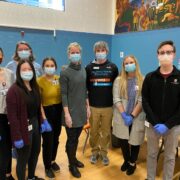
NBC15
Vaccination Clinic at Taft Street Boys & Girls Club in Madison
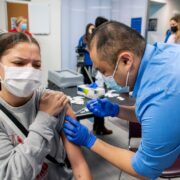
WKOW-TV (ABC)
Boys and Girls Club hosts first in series of community vaccination clinics
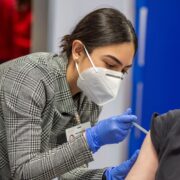
WISC-TV (CBS)
Vaccination Clinic at McKenzie Family Boys and Girls Club clinic in Sun Prairie
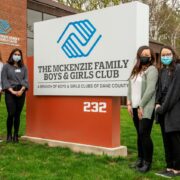
Wisconsin State Journal
Efforts ramp up to vaccinate people of color against COVID-19 in Wisconsin
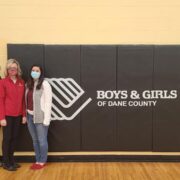
WKOW-TV (ABC)
Vaccine clinic for everyone 12 and older
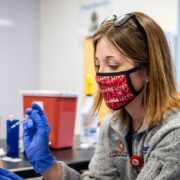
The Cap Times
Johnson & Johnson vaccine back in action in Wisconsin
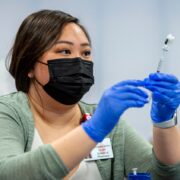
WISC-TV (CBS)
Week-long COVID-19 vaccine awareness campaign
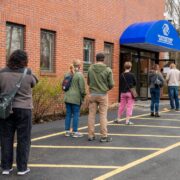
Wisconsin State Journal
Dane County leads state in COVID-19 vaccination, but racial disparities persist


